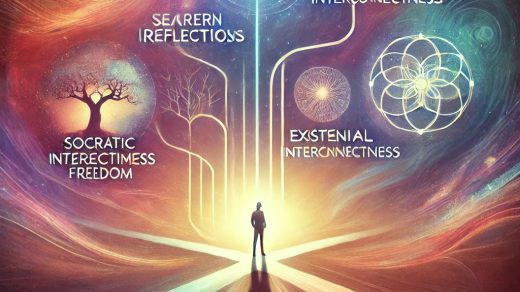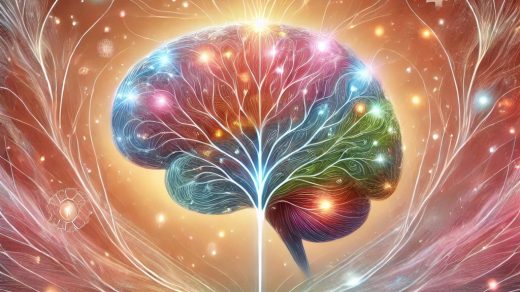The journey to discovering one’s true self is a path that no one else can walk for us. It is a deeply personal and introspective process, one that requires solitude, self-exploration, and internal struggle. While mentors, guides, and external wisdom can offer insight, the real work happens within. Philosophers and psychologists alike have recognized this, emphasizing that true self-discovery cannot be handed down—it must be experienced.
1. The Solitude of Self-Discovery: A Philosophical Perspective
Throughout history, philosophers have argued that understanding oneself requires solitude and deep introspection.
Socrates: “Know Thyself”
Socrates, one of the earliest advocates of self-knowledge, asserted that “the unexamined life is not worth living” (Plato, Apology). He emphasized that no external teacher could impart self-knowledge—it had to come from deep questioning and reflection. Even when Socrates himself served as a guide, he did not give people answers; instead, he asked questions that forced them to seek their own truths.
Nietzsche and the Will to Individuality
Friedrich Nietzsche believed that true self-discovery requires breaking away from societal norms and facing existential solitude. He warned against blindly following others, stating, “You are you, and that is enough; you cannot be someone else” (Nietzsche, Thus Spoke Zarathustra). He described the process of becoming one’s true self as one of pain, loneliness, and self-overcoming—a transformation that no one else can complete for us.
Jung’s Individuation Process
Carl Jung introduced the concept of individuation, the process of integrating one’s unconscious self with their conscious awareness (Jung, The Archetypes and the Collective Unconscious). He argued that self-discovery is deeply personal and requires confronting one’s hidden fears, desires, and unresolved conflicts. No guide or mentor can complete this integration on behalf of another; it is a journey that must be walked alone.
2. Why Others Can’t Walk the Path for You
The Limits of External Guidance
While mentors, philosophers, and spiritual teachers may provide wisdom, they can only point toward the path. As the Zen proverb states, “The teacher opens the door, but you must enter by yourself.” External figures can offer perspective, but they cannot undergo the personal transformation required to find your true self.
Viktor Frankl: The Inner Meaning Must Be Discovered by the Individual
Viktor Frankl, the psychologist and Holocaust survivor, argued that meaning cannot be given—it must be found within oneself. In Man’s Search for Meaning, he states:
“No one can experience meaning for another. The individual must answer life’s questions by being responsible for their own existence.”
In other words, no one can tell you who you are; you must uncover your own identity through introspection and personal struggle.
3. The Psychological Need for Solitude
Psychological research supports the idea that solitude is necessary for deep self-discovery.
Maslow’s Self-Actualization
Abraham Maslow described self-actualization as the highest human need—the process of becoming one’s fullest self (Maslow, Motivation and Personality). This journey requires inner work, personal reflection, and stepping away from external validation. People who seek their true selves often experience moments of deep loneliness, but this solitude allows for genuine self-growth.
Rollo May and the Courage to Be Alone
Existential psychologist Rollo May argued that true personal growth requires the courage to stand alone. He stated:
“The opposite of courage in our society is not cowardice; it is conformity.” (The Courage to Create)
Many avoid the path to self-discovery because it demands isolation from societal norms, expectations, and external distractions. Facing oneself alone is difficult, but necessary.
4. Why the Lonely Road Is Worth Walking
Freedom from External Influence
True self-awareness means being free from the need for external validation. The more one seeks guidance from others, the more they risk losing touch with their own unique path. The journey is lonely, but in solitude, a person finds their true voice.
The Strength That Comes from Self-Reliance
When a person overcomes their fears, insecurities, and false identities, they emerge stronger. Just as Nietzsche described the Übermensch, or “Super Human,” as someone who rises above external influences, the person who fully understands themselves becomes unshakable.
True Connection Comes After Self-Discovery
Ironically, once an individual walks the lonely road and finds themselves, they become capable of forming deeper, more authentic connections with others. Without insecurity, they no longer need approval, and their relationships become genuine rather than dependent.
Conclusion: The Path Must Be Walked Alone
Finding one’s true self is a journey that no one else can undertake on your behalf. While mentors and philosophers can offer guidance, the real transformation happens internally. From Socrates’ call to self-examination to Jung’s individuation process, both philosophy and psychology confirm that self-discovery is deeply personal and often lonely.
But this solitude is not a burden—it is a gift. It allows for the shedding of false identities, the development of inner strength, and the ultimate realization of one’s true self. While the road is difficult, it leads to the greatest reward: a life lived with authenticity, self-awareness, and true freedom.


